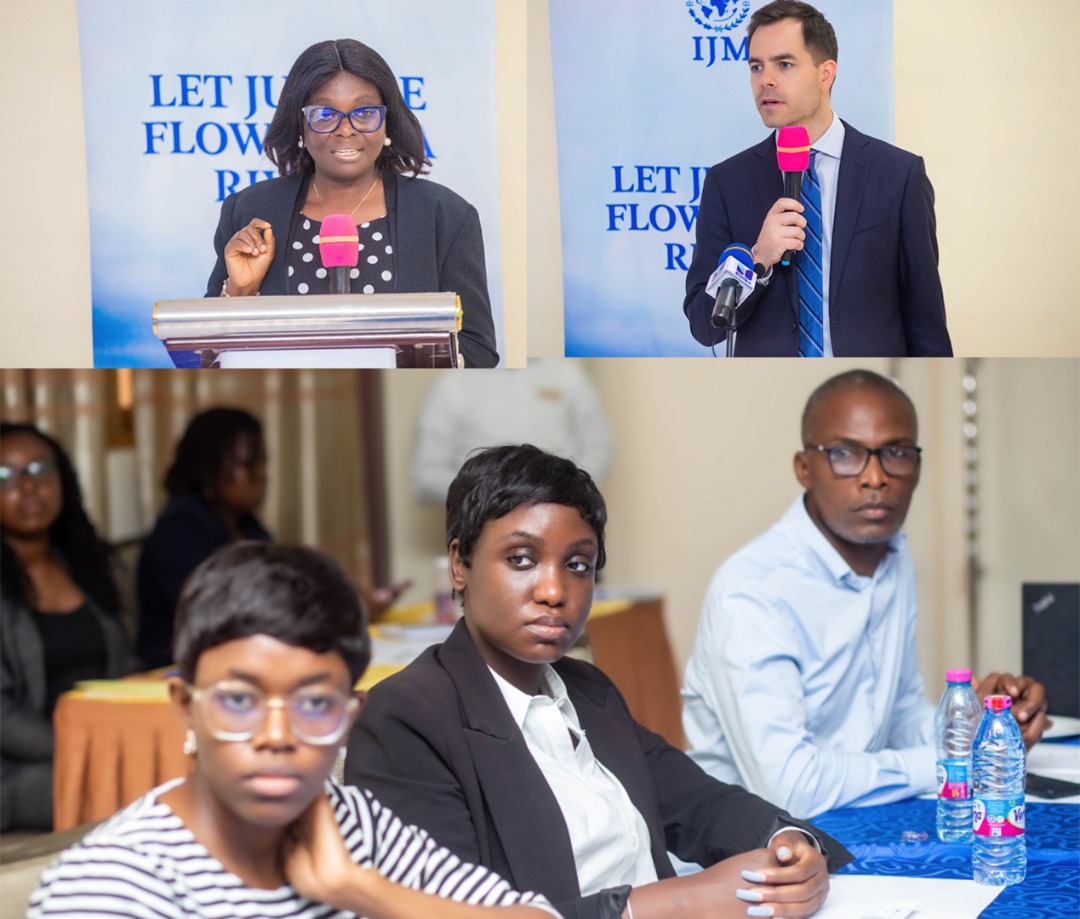Forced labour: Stakeholders call for stiffer sanctions, media focus
At a roundtable discussion held at an IJM-organised seminar on forced labour in Accra, calls were made by the various speakers for the sanction(fine) for convicted offenders to be heightened and a custodial sentence added

Stakeholders have called for stiffer sanctions and much focus by the media on the menace of forced labour.
At a roundtable discussion held at an IJM-organised seminar on forced labour in Accra, calls were made by the various speakers for the sanction(fine) for convicted offenders to be heightened and a custodial sentence added.
Additionally, the role of the media in this fight was discussed with a suggestion for it to dedicate much focus and attention to human interest stories including those on forced labour.
According to Section 116(2) of the Labour Act, 2003(Act 651), It is an offence for an employer to exact or cause to be exacted, or permit to be exacted, for his or her benefit forced labour from any worker.
Further, Subsection (3) intimates that any employer convicted of the offence of forced labour is liable to a fine not exceeding 250 penalty units.
The seminar, which generally focused on ‘The Menace of forced labour, its implication on the economy, Rule of Law, and the way forward,” attracted participants from the Judicial Service, Civil Society, police and the media.
Reiterating the above, a Deputy Director at the Criminal Investigation Department(CID) of the Ghana Police Service, DSP William Ayaregah said that jail terms ought to be added to the regime of fines to make it deterrent enough especially for the well-to-do offenders.
Role of the Public Justice System
Speaking on the above, a Justice of the Court of Appeal, Justice Mensah Datsa noted that forced labour though very difficult to detect represents an aspect of modern-day slavery.
She, therefore, called on all and sundry to rather focus on the subtle means of the menace which is mostly ignored and unnoticed but militating against the country and the continent.
Implications of forced labour
On his part, Mr Kwame Mensa, a representative of the International Labour Organisation(ILO) took participants through the practical implications of forced labour and the issue of debt bondage prevalent in the fishing sector in Ghana.
As a result, he pricked the moral status of fish consumers who are mostly ignorant about forced labour-induced processes behind getting products like fish into the market.
Additionally, Mr Mensa called for the United Nations Guidance on Trade to be upheld and implemented in the wake of the Africa Continental Free Trade Area(AFCFTA) and charged CSOs to transform what they see on the ground for debate and thus influence policy in the sector.
Adding to the above, a Director of the Cocoa Programme at the IJM, Justin Van Dalen mentioned the need for society and the nation as a whole, to give much-needed attention to the menace of forced labour to strengthen the fight against the same.
Media and the fight
A Broadcast Journalist at the Multimedia Group, Raymond Acquah, when he took his turn, bemoaned the not encouraging number of stories in the portals of major media houses on the menace.
To him, this is a result of less interest on the part of their consumers, and lack of a better cooperation between media and civil society and thus called for the needed discussion to deal with this.
About IJM
International Justice Mission is an international, non-governmental organization focused on human rights, law and law enforcement.
IJM works to combat sex trafficking, child sexual assault, cybersex trafficking, forced labour slavery, property grabbing, and police abuse of power and addresses the citizenship rights of minorities.
International Justice Mission represents victims in cases of sex trafficking, forced labour, slavery, abuse of police power, theft of property and citizenship rights. It also works with the governments of developing countries to improve justice systems.


